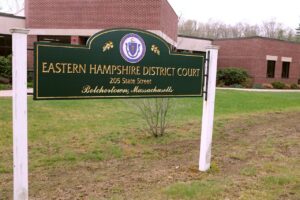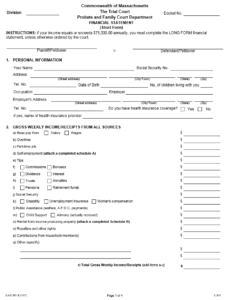New Bedford Probate and Family Court: A Comprehensive Guide
For residents of Bristol County, the New Bedford Probate and Family Court is an important institution that handles significant life events and changes. From the administration of wills and estates to divorces and child custody disputes, the court’s rulings directly impact people’s lives. This guide provides an overview of the New Bedford Probate and Family Court, walks through different types of proceedings, and offers tips for navigating the court process with or without an attorney. With the right information and preparation, you can feel empowered when facing the probate or family court system.
Overview of the New Bedford Probate and Family Court
Location and Jurisdiction
The New Bedford Probate and Family Court is located at 505 Pleasant Street in downtown New Bedford. This courthouse serves all cities and towns in Bristol County, Massachusetts. The court handles probate matters like wills, estates, guardianships, conservatorships, and adoptions. It also oversees family law cases including divorce, child support, custody, visitation rights, and domestic abuse prevention orders. Judges make rulings on family and probate legal disputes following Massachusetts state law.
Services Offered
In addition to court proceedings, the New Bedford Probate and Family Court provides the following services:
- Virtual Registry – The ability to electronically file forms and access case information online.
- Text Reminders – Sign up to receive text reminders about your upcoming civil court dates.
- Court Forms – Access Massachusetts statewide family and probate court forms.
- Fee Information – Details on required filing fees and payment options.
- ADA Assistance – Accommodations for accessibility needs.
Hours of Operation
The New Bedford Probate and Family Court is open Monday-Tuesday and Thursday-Friday from 8:30am to 4:30pm. It is closed on Wednesdays as well as state and federal holidays. Cases are heard throughout the day, with specific times scheduled for individual hearings.
Parking and Transportation
Free parking is limited near the courthouse, but there are two parking garages within walking distance. Metered street parking is available in the surrounding downtown area. Allow enough time to find parking. Public transportation is also an option via the Southeastern Regional Transit Authority (SRTA) bus system.
see also How To Become A Court Reporter
Probate Court Proceedings
The probate court division handles matters involving wills, estates, conservatorships, guardianships, adoptions, and name changes. Some of the most common probate cases include:
Wills and Estates
When a person dies, their will is submitted to probate court. The judge reviews the will and approves the executor named to carry out the wishes stated in the document. The executor marshals assets, pays debts, and distributes inheritance to beneficiaries. If someone dies without a will, the court appoints an administrator to settle the estate. Contested wills or disputes between beneficiaries over assets may lead to probate litigation.
Guardianships and Conservatorships
If an adult is deemed incapacitated and unable to make decisions for themselves, probate court may establish an adult guardianship or conservatorship. This places responsibility for their personal care and financial management in the hands of an appointed guardian or conservator. The court oversees this arrangement to protect the interests of the incapacitated adult.
Name Changes
To legally change your name for any reason, you must petition the probate court. The judge will approve the name change as long as it is not for fraudulent purposes. Both adults and minors going through adoption can request a name change during the adoption process.
Adoptions
The probate court finalizes adoptions for children and adults. After finding the adoptive placement is recommended and in the best interests of the adoptee, the judge issues a decree of adoption. This severs the legal rights of biological parents and establishes the adoptive parents as the new legal parents. Name changes often occur during adoption proceedings.
Family Court Proceedings
Family court handles legal matters involving divorce, child custody, child support, alimony, and domestic violence. Proceedings are held before a judge who makes rulings based on the evidence. Some common family court cases include:
Divorce and Separation
The family court division oversees legal separations and divorces in Massachusetts. Proceedings address division of marital assets and debts, alimony, and child-related concerns like custody, visitation, and child support. Cases start with a complaint for divorce filed by one spouse. The court process ends with a judgment of divorce or separation order issued by the judge.
Child Custody and Support
Family court decides legal and physical child custody between divorcing or separating parents. This means determining which parent the children will live with and the parenting schedule for the other parent. Cases involving unmarried parents also address custody and visitation rights. The judge sets a child support order based on state guidelines and the parents’ incomes and expenses.
Domestic Violence Restraining Orders
Victims of domestic violence and abuse can petition the family court for restraining orders against family members and intimate partners. The judge can issue temporary emergency orders and permanent protective orders setting restrictions and conditions to prevent further harm. Violating a restraining order leads to criminal charges.
Working with a Lawyer in Probate and Family Court
Navigating probate and family court proceedings presents complex legal issues. Hiring an attorney provides expertise that can lead to better outcomes.
Deciding Whether to Hire a Lawyer
You are not required to have legal representation in probate or family court. However, these cases impact important rights and arrangements for you and your family. Consider your options:
- For simple matters like an uncontested name change, you may be able to self-represent.
- Disputes over wills, estates, and divorces usually benefit from hiring a lawyer.
- Seek legal advice if the other party has an attorney to evenly match representation.
Finding and Selecting an Attorney
Look for a lawyer who specializes in probate or family law when searching for representation. Consider qualifications, experience, reputation, communication style, and whether you feel comfortable placing your trust in them. Initial consultations allow you to interview potential attorneys before retaining one.
Legal Fees and Payment Options
Discuss fees upfront when meeting with lawyers. Probate and family court attorneys typically charge hourly rates or flat fees for defined scopes of work. Fee structures can include retainers, payment plans, flat fees, and fees contingent on case outcomes. Be sure billing terms are defined in a written agreement.
Representing Yourself in Probate and Family Court
If you decide to represent yourself in probate or family court without an attorney, be prepared for the responsibility.
Determining if Self-Representation is Right for You
Consider the complexity of your case and whether you can effectively argue it yourself. Court procedures, rules of evidence, and completing forms may require legal knowledge. Be realistic about whether self-representation meets your needs.
Resources for Self-Represented Litigants
The court offers resources to help people navigate cases themselves:
- Review Massachusetts court rules and guidelines for your type of proceeding.
- Access court forms and instructions online.
- Attend a court self-help center workshop on legal topics and procedures.
- Consult the court law library for legal information.
Tips for Navigating the Court Process
If self-representing, keep these tips in mind:
- Meet court deadlines for filings and paperwork.
- Organize your documents, notes, evidence, and arguments.
- Maintain respectful behavior and language in the courtroom.
- Stick to factual statements when addressing the judge.
- Comply with the judge’s rulings and court orders.
Conclusion
The New Bedford Probate and Family Court handles important legal proceedings that impact people’s families, health, finances, and lives. By understanding the court processes and preparing accordingly, you can feel more confident participating in the system, whether with a lawyer or self-representing. Take time to make informed decisions at each stage of your case. Seek resources and support when needed. With the right approach, you can effectively navigate probate and family court proceedings in New Bedford.
see also Oldham County District Court
Key Takeaways:
- The New Bedford Probate and Family Court serves Bristol County residents for estate, guardianship, adoption, divorce, and child custody matters.
- Legal representation is advisable for complex proceedings like divorces, while simpler name changes may be DIY.
- Be organized when self-representing by knowing rules, completing forms properly, and presenting clear facts.
- Look for lawyers experienced in probate and family law when hiring representation. Discuss fees upfront.
Where to Find More Information:
- Visit the New Bedford Probate and Family Court website for forms, contact info, and case lookup.
- Consult resources like court self-help centers, law libraries, and legal aid organizations.
- Read Massachusetts online guides on probate and family court proceedings.
- Hire an attorney for legal advice and representation specific to your case.
Frequently Asked Questions
What are the main types of cases handled by the New Bedford Probate and Family Court?
This court oversees probate cases involving wills, estates, conservatorships, guardianships, adoptions, and name changes. It also handles family law cases like divorce, separation, custody, visitation, child support, and restraining orders.
How can I look up information on a probate or family court case?
You can access public case records through the Virtual Registry available on the court’s website. This online portal lets you search cases and download documents.
Should I hire an attorney for my probate or family court case?
Having a lawyer represent you is advisable for complicated matters like divorce, child custody disputes, and estate litigation. Simple cases like uncontested adoptions or name changes may be DIY.
What resources are available to help me represent myself in probate or family court?
The court has self-help centers, a law library, and online materials to assist people navigating cases on their own. Get forms, guidance, legal info, and help completing paperwork.
What is the difference between a guardian and a conservator?
A guardian oversees the personal care and daily living decisions for an incapacitated person. A conservator handles financial matters and protects assets if someone can no longer manage their finances.







